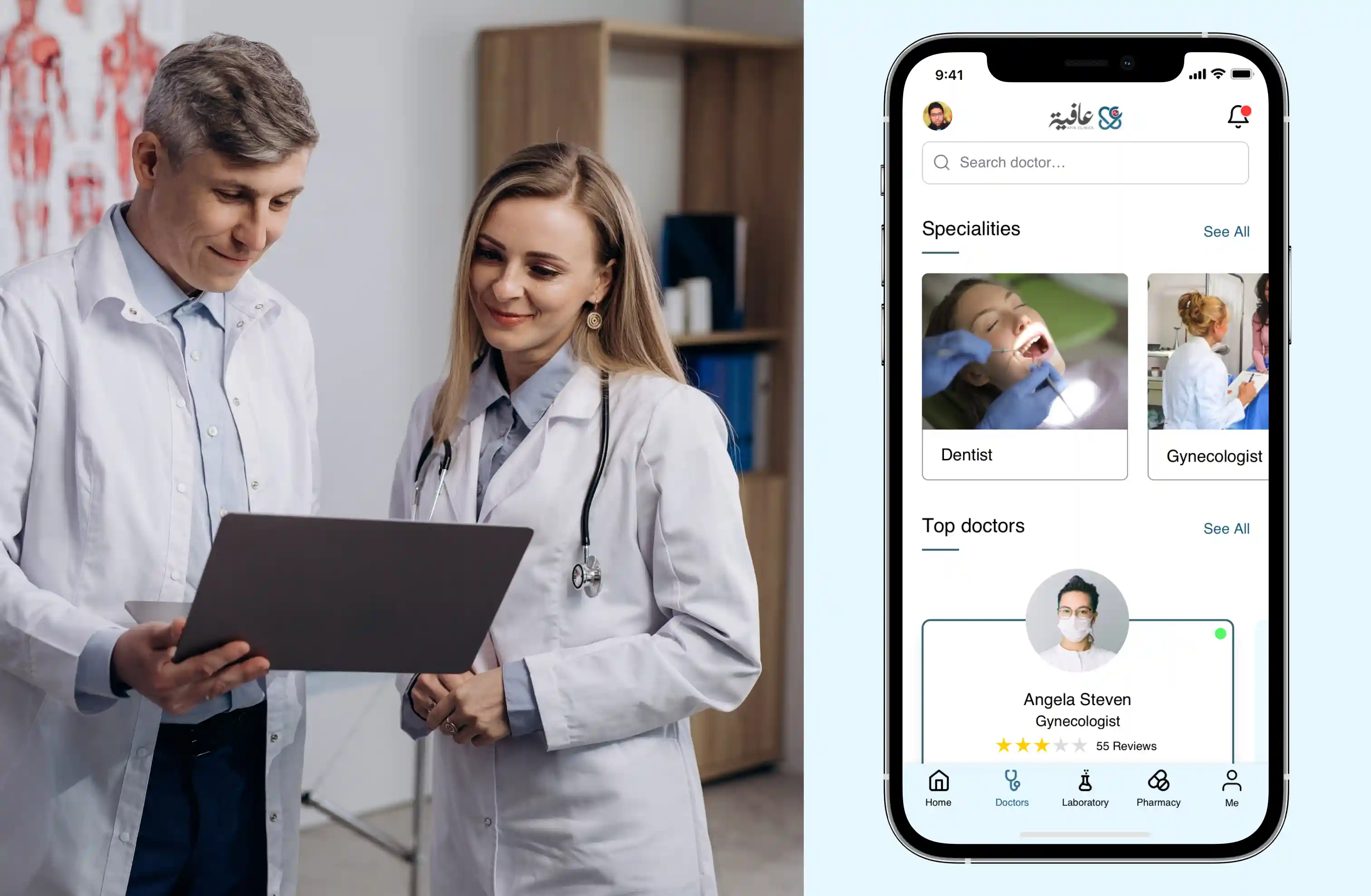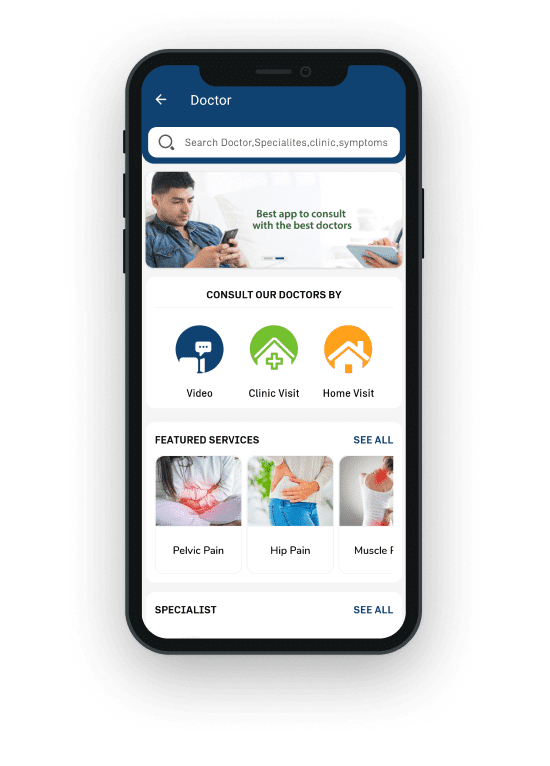The Future of Health Care: Why Clinics Required a Mobile App Today
As the health care landscape proceeds to evolve, clinics face placing stress to adapt to person assumptions for higher convenience and access. The assimilation of mobile applications can serve as an essential method for boosting person engagement and improving operations.
Transforming Person Expectations
As the landscape of healthcare evolves, client expectations are undertaking a substantial change. Today's clients are increasingly looking for benefit, availability, and individualized treatment.
Moreover, people are coming to be much more informed and empowered, typically looking into problems and therapies on the internet prior to consultations. This enhanced understanding is coupled with a demand for transparency in health care procedures, including cost quotes and treatment options. Because of this, carriers are urged to adapt by taking on digital tools that improve the patient experience.
The assumption for reliable and prompt communication has actually never been higher, with several individuals considering responsiveness an essential part of top quality treatment. mobile app for clinics. In this progressing landscape, health care companies have to acknowledge these changing assumptions and utilize mobile applications to cultivate an extra patient-centric strategy, making certain that they not only satisfy but surpass the requirements set by today's informed consumers
Enhancing Individual Engagement

Mobile applications promote interaction in between clients and health care suppliers, allowing real-time visit scheduling, reminders for medication adherence, and direct messaging features. These capabilities not just improve comfort however also develop a feeling of accountability among individuals. In addition, mobile apps can offer educational web content tailored to individual requirements, helping people much better comprehend their conditions and therapy alternatives.
The integration of gamification elements within medical care applications can additionally inspire individuals to engage in healthy and balanced actions, strengthening positive way of life changes. Inevitably, boosting client involvement with mobile applications leads to boosted health results, greater individual complete satisfaction, and a much more collective healthcare experience.
Enhancing Facility Operations
Streamlining center operations is essential for boosting process efficiency and maximizing patient treatment. The implementation of mobile applications can significantly minimize management problems, enabling doctor to focus a lot more on client interactions. By automating consultation scheduling, patient check-ins, and billing processes, clinics can minimize wait times and enhance total functional performance.
Mobile apps likewise promote real-time accessibility to individual records, allowing healthcare professionals to make educated decisions rapidly. This immediacy not just boosts the high quality of treatment however additionally reduces the likelihood of errors connected with misplaced or obsoleted info. Furthermore, leveraging mobile modern technology sustains an extra well organized method to taking care of person follow-ups and treatment plans, guaranteeing that no essential steps are ignored.
Additionally, mobile apps can enhance supply administration by providing centers with tools to check materials and drugs efficiently. This permits prompt replenishment and aids stay clear of interruptions in individual treatment due to stock shortages. By integrating these performances right into their everyday procedures, clinics can create a more reliable and natural environment, eventually bring about boosted individual outcomes and fulfillment. Accepting mobile technology is not simply a fad; it is a needed evolution in the health care landscape.
Improving Interaction Channels
Reliable communication is often pointed out as a cornerstone of quality medical care delivery. In today's fast-paced medical atmosphere, mobile applications can dramatically boost interaction networks in between facilities, patients, and healthcare service providers. By integrating mobile applications right into their operations, clinics can promote real-time interactions, making sure that patients receive timely details concerning their appointments, examination results, and treatment plans.
Mobile applications also equip clients to interact directly with their medical care teams with safe messaging attributes. This straight line of interaction cultivates a sense of interaction and permits immediate information of problems, which can bring about better adherence to therapy protocols. Push notifications can advise clients of upcoming consultations or medicine schedules, decreasing no-show rates and improving general wellness end results.

Remaining Affordable in Health Care
In a swiftly evolving health care landscape, organizations have to focus on innovation and adaptability to keep an affordable side. The helpful site assimilation of mobile applications right into healthcare services is no longer optional; it is necessary for facilities aiming to enhance patient involvement, improve operations, and boost total service distribution.
As patients progressively count on electronic systems for health and wellness management, facilities that fail to embrace mobile innovation danger falling behind. A well-designed mobile app can supply functions such as visit scheduling, telemedicine examinations, and accessibility to clinical Click Here documents, providing clients with ease and promoting loyalty.

Competitors are likewise buying mobile options, so staying ahead needs continual enhancement and staying informed concerning technological advancements. Clinics need to not only execute mobile applications yet likewise participate in routine updates and improvements. Eventually, the successful integration of mobile modern technology will distinguish forward-thinking healthcare companies and set the criteria for patient-centric treatment in a digital world.
Conclusion
Finally, the integration of mobile applications in clinics is critical to deal with the advancing landscape of patient assumptions. By enhancing client involvement, simplifying operations, and enhancing interaction channels, clinics can considerably increase wellness end results. Additionally, the adoption of mobile innovation positions centers to continue to be affordable in a significantly digital medical care atmosphere. Ultimately, the strategic application of mobile applications represents a critical step towards delivering easily accessible and tailored medical care, thereby meeting the demands these days's empowered patients.
Inevitably, enhancing patient interaction with mobile applications leads to improved health results, higher client complete satisfaction, and a more collaborative healthcare experience.Mobile apps content also assist in real-time accessibility to patient documents, enabling healthcare specialists to make enlightened decisions rapidly. In today's fast-paced clinical environment, mobile applications can substantially boost interaction channels between facilities, patients, and health care carriers.Mobile apps also equip patients to connect straight with their medical care groups through safe messaging attributes. Eventually, the tactical application of mobile applications represents a vital action toward supplying available and customized healthcare, therefore fulfilling the demands of today's equipped clients.